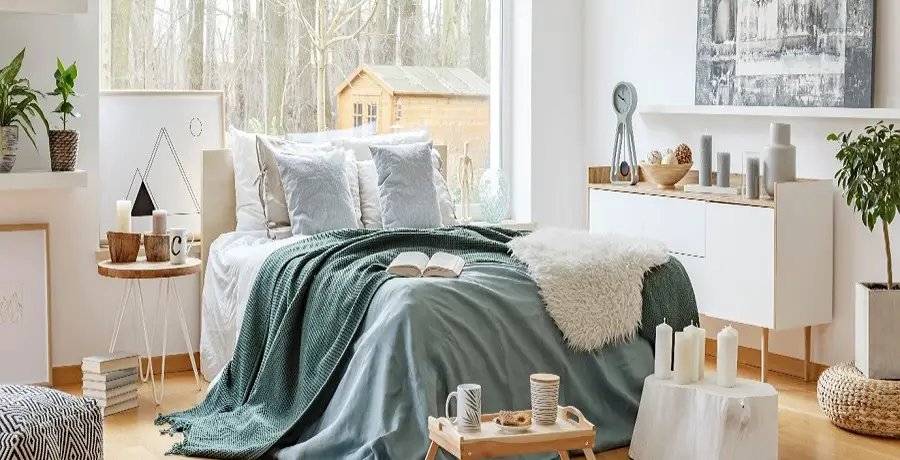Most of us find it hard to switch off at the end of a working day, but this has now become particular difficult with more of us are working from home due to the pandemic.
It can be beneficial to have a stress-free zone away from your home office, as well as a relaxing bedroom to completely unwind of an evening. So, here’s our guide on how you can do just that.
Have a designated workspace
When travelling into an office or any form of working environment, you can set clear boundaries between your work and personal life. To reduce stress and anxiety, having a work-life balance is key.
But when working from home, these boundaries can begin to blur.
Try to create an area that is just for working, and that won’t encroach on the rest of your house – whether this is a fully-fledged home office or a desk that is sectioned away from the rest of the room by potted plants.
There’s lots of inspiration out there to help make your office space more stylish and stress-free too – if you need a little nudge in the right direction. And, if you have a separate area to work, when you are finished you can move away to switch off, relax and unwind.
Tight on space or your work area has multiple uses?
Make sure to tidy away once you’ve finished your working day, so that you don’t have any reminders of your work still present, whilst you try to rest and recuperate.
Create a routine
Sticking to a well thought out routine can help you distinguish your home life from your work life.
Having a set time to wake up and to finish work will deter you away from continuing to work late or get up unreasonably early, just to get more done or ahead – which may lead to forming an unhealthy relationship between your mental health, work and home.(1,2)
You should also be able to enjoy your evenings, allowing you to clear your head and forget about the worries of work. Set this as part of your weekly or daily routine, to do something relaxing or enjoyable during the evening, such as:
- Ringing or video calling a friend or family member
- Cooking your favourite meal
- Spending time on a hobby or crafts
If it’s something that you can fully immerse yourself in or where you can get lost in the moment, it will help to improve your mental health and forget all about work.
Curate a calming atmosphere
Once you have finished work, creating a calming environment can help you to relax and also make it easier if you are trying to go to sleep.
Try to avoid excess light during this time, as this can disrupt your relaxation, as well as throw you off your sleep pattern. Lighting a scented candle can not only create the right amount of dimmed light in a room, but it can also have pleasant, fresh and soothing aroma such as lavender.
Keeping noise to a minimum is also an important part of creating a positive, stress-free zone, especially to cultivate peace and tranquillity.
Try listening to soothing sounds via an app on your phone or online, and to intensify the experience, listen through headphones.
Ensure you get a good’s night sleep
To be fully functioning the next day, and a vital part of reducing anxiety and stress, is to make sure you sleep well and for the correct amount of time. The style of your bedroom and the bed itself can have a huge impact on this.
Your bedding plays an important role in how comfortable you feel in your bedroom, and in aiding a better night’s sleep. A high-quality, luxury bedding set can make any bed seem cosy and inviting, but can also help to regulate your temperature during the night.
Colour can also have an effect on the mood of the room, especially when it comes to the place where you relax the most. Shades of green, with its association with nature, evoke a sense of rest and calm.
Try a colour palette in your bedroom of greens, aqua and duck egg to create serenity and help you relax when it comes to the end of the day.
Leave Feedback: Was this article helpful?

